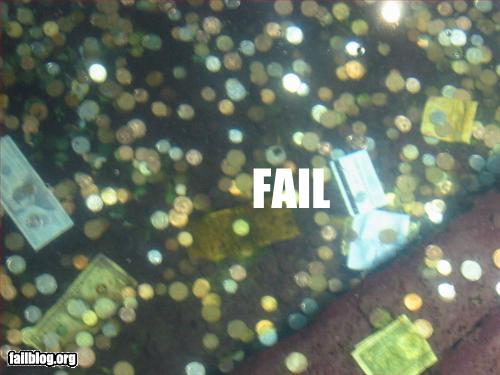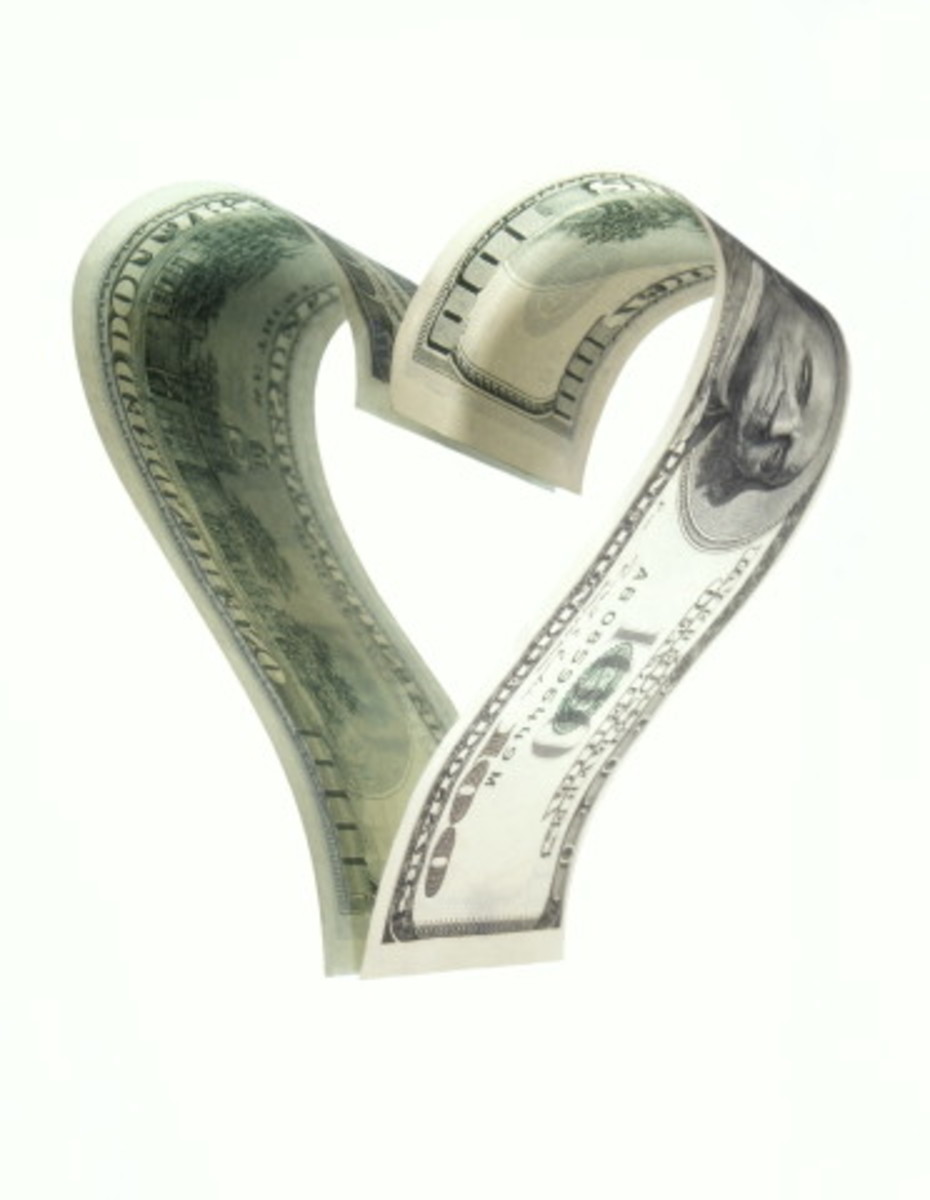Penny Auction Site Reviews: Stealing Deals, Weeding Shills

With eBay losing the faith and internet auction hunters turning to sites like Bonanzle instead, many bargain hunters are discovering penny auctions as another good way to go. There are some genuinely amazing finds to be had with penny auctions for a very small investment (where else can you pick up an iPod for just a few cents?), but there are also quite a few scam sites out there as well. How do you tell the scams from the legit sites? By learning how these sites work, where the potential pitfalls are, and picking up on a few rules of thumb. In this site you'll not only learn the basics of what these penny auctions sites are and how they work, you'll find out how scam sites do what they do, and learn to tell the gems from the scams. Then we'll review a few of the better sites out there, and turn you loose to grab merchandise, gift cards and cold, hard cash at cents on the dollar.
How penny auction sites work
Merchandise is offered on a penny auction site. If the site has a lot of users, there could be eight or more auctions going on at once, at every hour of the day. If the site is just starting up, there may be just one auction at a time, they may be staggered in hour or half-hour intervals, or the site may actually only feature auctions one hour per day. Users interested in these sites have purchased bids, which they then use to try to outbid each other on the items. Unlike a standard auction site, each bid only jumps the price up by a penny. It also increases the time left on the item's auction clock, allowing other users to bid again. The last user to place a bid on the item wins it, generally for something between a few cents and a few bucks.
What kinds of items can I expect?
Primarily, penny auction sites feature $50 and $100 gift cards for everything from J.C. Penney's, Borders, Home Depot and Shell, to restaurants like Olive Garden and Applebee's, to Visa gift cards which can be spent like cash. Recently, a few penny auction sites have actually been auctioning off cash which, absurdly, goes for much less than the actual cash value most of the time. The idea here is generally to draw new users to the site, and keep them coming back. Personal electronics like iPod Nanos and Touches are big draws, and many of these sites have been regularly auctioning off Netbooks (a smaller, more lightweight take on notebook computers) and huge wall-mount plasma display TVs. Gaming systems like PlayStation 3s and Gamecubes are common, and once in a while a site may penny auction off a car. Different sites tend to follow their own themes and trends of merchandise; one site may specialize in electronics, another in home furnishings, still another in handbags, jewelry and fashion accessories. Part of finding the right penny auction site for you involves checking out their selection, and seeing if they auction off products you actually want.
How do penny auction sites make their money?
In short, they're banking on having (or gaining) enough users to keep the whole thing profitable. You may have bought a PlayStation 3 for $10.54, but the site has made more than that. Remember, for each bid you've used you've also spent the money you used to buy the bids from the site in the first place. Depending on the sites, bids usually cost between three cents to a dollar a bid. So on a site where bids cost, say, fifty cents each, the $10.54 that the PlayStation went up to in penny-bid increments also represents $527.00 earned by the site as each bidder threw in bids... meaning that the product actually went for $537.40. Still, this is a more ideal case than most sites encounter, at least at first, because they haven't acquired enough users to pump the bidding up that far. When you see a $50 gift card going for nine cents, you know the site probably lost their shirt on the deal, but that they're counting on getting enough users soon to make up the difference. In the meantime, whoever got that $50 gift card with five bids of their own, each costing fifty cents each, has come out of it with quite a bargain.

What do scam penny auction sites do?
When a website is just starting out, be it a penny auction site or any other kind, it hasn't yet attracted a lot of users. For a penny auction site, this means that their products are bidding for very low amounts, and a starting penny auction site can lose quite a bit at first while it's waiting for new users to trickle in. Fraudulent penny auction sites create fake users to place fake bids on their items, in order to keep the final bid price high. Any real user who logs in and buys bids ends up wasting their money on them, because either they'll never win the item with all the fake bidding going on, or they'll get it for an absurdly high price as a result. Either way, the scam site has just defrauded them out of most of the money they've spent there. Using this kind of fake bidding, either through a program (called a "bot") or by having friends or employees placing friendly bids (they're called "shills") defrauds people and makes the site less than worthless in terms of winning auctions. (Although you could come away with far more money just suing the pants off them, as website owners are necessarily easy to track down through their internet registration.)
Penny Auction Directories:
How can I tell a legitimate penny auction site from a scam?
It's actually pretty easy. First, you can check to see whether the usernames who are shown bidding are up all hours of the day, bidding consistently.
Secondly, you can check whether a site with an awful lot of supposed users on it is actually getting enough real traffic to account for them by checking their internet traffic statistics, either on this handy table or by googling for "site traffic statistics" and using a conventional service to find out more about them. If there's heavy bidding going on but the site doesn't have much traffic coming to it, you can bet it's a fake, and prepare to unleash the attorneys.
Finally, you can keep your ear to the ground. Google for the site's name and another keyword like "scam", "shill", or "bot". You can check blogs like Penny Auction Watch. The standard practice seems to be that if someone calls fraud, run. But I'm a little cautious about that practice. By that logic, a scam site could post messages alleging fraud on the part of a bigger, more established site, and users would leave it in droves for no reason. This isn't good practice. A more sensible approach would be that if someone calls fraud, assess and evaluate. And of course an even more sane approach would be that if fraud is discovered, sue the bejeezus out of them enough to give anyone even considering starting up a fraudulent site the heebie-jeebies.
If you've been defrauded by a website, you may be able to come out of it with a ton of cash. Be sure to read What to do when a website rips you off.
What should I look for in a penny auction site?
- Are there items you'd actually want? - Before registering with a site, make sure they feature products you actually have a use for. There's obviously little point in picking up a $50 McDonald's gift card for four cents plus shipping if you're a vegetarian. Another site may have that coffee maker you've been eyeing... but what happens once you've nabbed it? Does the site have enough things you'd want, frequently enough, to make it worth buying bids on it? Still another site may feature a selection of movies you'd never watch and games you'd never play (usually because DVDs can be very easy for a site owner to come by). Not particularly useful. That being said, as you peruse what's on offer keep in mind that you can also use penny auction sites to snag awesome gifts at even awesomer prices... doing that Christmas shopping early the whole year 'round has never been more fun, or less costly.
- Does the site have enough auctions? - There's little point in sinking money into bids on a site that has one auction a day. Look for sites that have at least one auction, preferably multiple simultaneous auctions, on a constant basis. (The flip side of this reasoning is that sites with less auctions tend to be that way because they don't yet have a lot of users, and that can be good for you. But even the few users it does have tend to focus on the one or two auctions a day it does have, and that's bad.)
- The ideal amount of users - Sites with few users tend not to have many auctions, and tend not to have much selection in terms of their inventory. Contrariwise, sites with more users and more auctions tend to have bidding coming hot and heavy enough to drive up the prices and the number of bids necessary to win. So what's the right balance? Whichever you feel more comfortable with, actually. Settle on one and develop a bidding strategy around it. Even a packed site tends to have a dropoff at around 6am, when the majority of English speaking users who've been up all night have gone to bed, and before those in the daytime have gotten up and online. Nabbing auctions in off hours can be a good strategy.
- Avoid sites with automatic user bidding - A few sites have begun to offer free automatic bidding as a "service"... but for whom? The idea goes that you set your userbot with a minimum and maximum price, and a maximum number of bids to use up. You point it at a specific auction and let it go to town. But this so-called service ends up benefiting the site owner at the expense of the users. In a scenario in which two or more users have set their bid-bots at an auction, the automatic bidding only succeeds in jumping the auction price (and the number of bids used) quite a bit as the bid-bots battle their way back and forth. All concerned lose their bids, and the site owner has just made a tidy sum as a result. Even worse, sites which do this and show the bid history of a closed auction raise the suspicion that any supposedly legitimate user who's been bid-botting could be working for the site owner, and defrauding the other users in the process. And as if that weren't bad enough, site owners who've installed user-bots on their site could just as easily have used botting scripts for themselves, creating completely fake users to automatically compete against legitimate users. Once botting scripts are installed, there's no way to know how they're being used. Long story short, bots of any kind can make even the best of penny auction sites look suddenly dicey.
- Sensible prices on bids - The average price for bids on a good site is around fifty to seventy-five cents. Some sites have bids going for three cents, while a rare few charge a buck a bid. If I'm paying more per bid, I naturally expect to see fewer bids winning the same auction, or I'm just wasting my time and money. Dollar bids aren't necessarily a losing prospect, but make sure you're getting some good value for your money. For example, the site may feature awesome products that other sites don't carry. Decide if it's worth it, and let other users do the same. The site will succeed or perish depending on whether enough users think it's worth it.
Penny auction sites reviewed:
I've reviewed a few of the more widely-used sites for you here. There are plenty more listed at Penny Auction Traffic, complete with rankings and web-traffic statistics that are updated daily.

BidFight features some very impressive merchandise, and a very responsive customer service department. Auctions seem to happen at a rate of one per hour. Bids are a dollar each, which ordinarily would be a deal-breaker, but they have some very good items up for bid. I'm leery of their user-bots, which this site calls "Fight Assistants". For me, that scratches the site right there. But that may be what you're looking for.

LosingBid isn't quite a penny auction site, it's an auction site with a difference. What if whenever you bid on an item and got outbid, you actually got money in addition to what you'd already had? That's how it works here. About 40% of the difference between your bid and the next bid accrues to you. So you either get what you wanted, or you actually make money if you don't! LosingBid encourages people to bid on things they want, and selling items on it is currently free. So rather than putting your items up for sale on eBay, consider using LosingBid instead. Every once in a while someone comes up with a better idea that's an improvement on what sites are currently doing, and this appears to be one. You heard it here first!

Wavee's an example of what a penny auction site looks like when it's all grown up and has acquired a large enough user base. A goodly array of items, all of which were selling for absurdly low prices when last I checked ($50 Chevron gift card for 14 cents, Rock Band 2 Special Edition for 2 cents, a $50 Barnes & Noble gift card - for those who prefer to buy their literature by the pound at the publisher's discretion - going for 2 cents, and an XBox 360 Elite 120GB bundle pack going for 24 cents, just in case you wanted to opt into serfdom in Microsoft's demesnes.) 75 cents per bid, an auction every half-hour, and user-bidbots. Ordinarily bidbots of any kind would make a site a write-off, but with the final auction closing prices that low if they are trying to scam they're obviously doing something very, very wrong. Worth a look in.
Update: (courtesy Al Simpson)
Guess those deals at Wavee were TOO good:
"DNS service for this domain has expired with DNS Made Easy"
"11Alive did a story about penny auctions that featured Wavee in 2009 when their Better Business Bureau Rating was an "A" and two follow up stories as consumer complaints were made and the rating plunged to a D, then an F."
"Wavee has agreed to provide $202,000 in consumer restitution, a $35,000 civil penalty and 15,000 in administrative expenses. The Office of Consumer Affairs said Wavee has also agreed to pay the state $50,000 to establish a trust account for issuing refunds"

Zoozle has a decent selection at great prices. They even auction cash. Auctions are constant, set at an hour apart. Bids are 67 cents, with discounts increasing as you purchase in bulk. They provide user-bots, which they call "bid-buddies". A fair to middling site, depending upon what you're after. As I write this, the last auction sold was a 16GB blue iPod Nano for 16 cents, which is nothing to sneeze at.

DubLi has phenomenal items. The closing auction prices vary, even for the same item: a $200 Visa gift card sold for $18.50, and then for $49.75, then a third for $183.25. The closing auction prices I'm seeing at the moment look pretty high overall. Bid credits are eighty cents per. Prices of a current auction aren't shown until you place a bid, at which point the price is reduced by 25 cents and you have the option of purchasing it for that price. If you don't, someone else may place a bid and get it for less. This probably explains why the final prices are so high - not enough users lowering the prices. A reasonably clever approach to keeping site costs low as it accrues a user base... but one that keeps prices dissatisfyingly high, as well as allows other users to nab a product with a little more money before you're through chipping away at the price. DubLi has a modest amount of traffic... but I really don't see why. There's really no point to lowering the price of something by 25 cents with each bid costing eighty cents. I'm genuinely beginning to wonder both about the site, and its users.
In summary
Penny auction sites can offer extremely good bargains, if you do your research and plan ahead. There's a plethora of sites to choose from, with new ones cropping up every day. Choose one that everyone's heard about and you won't get much of a bargain with all the bidding. Choose one that's just starting up and you risk finding the latest, greatest fraud. Or at least... you would have, if you hadn't just learned how to tell legit sites from scams. Now not only can you spot the difference, but you also have the option of catching a scam site in the act, calling up an attorney and pulling the plug on it... and making far more than a penny in the process.
Have fun!








